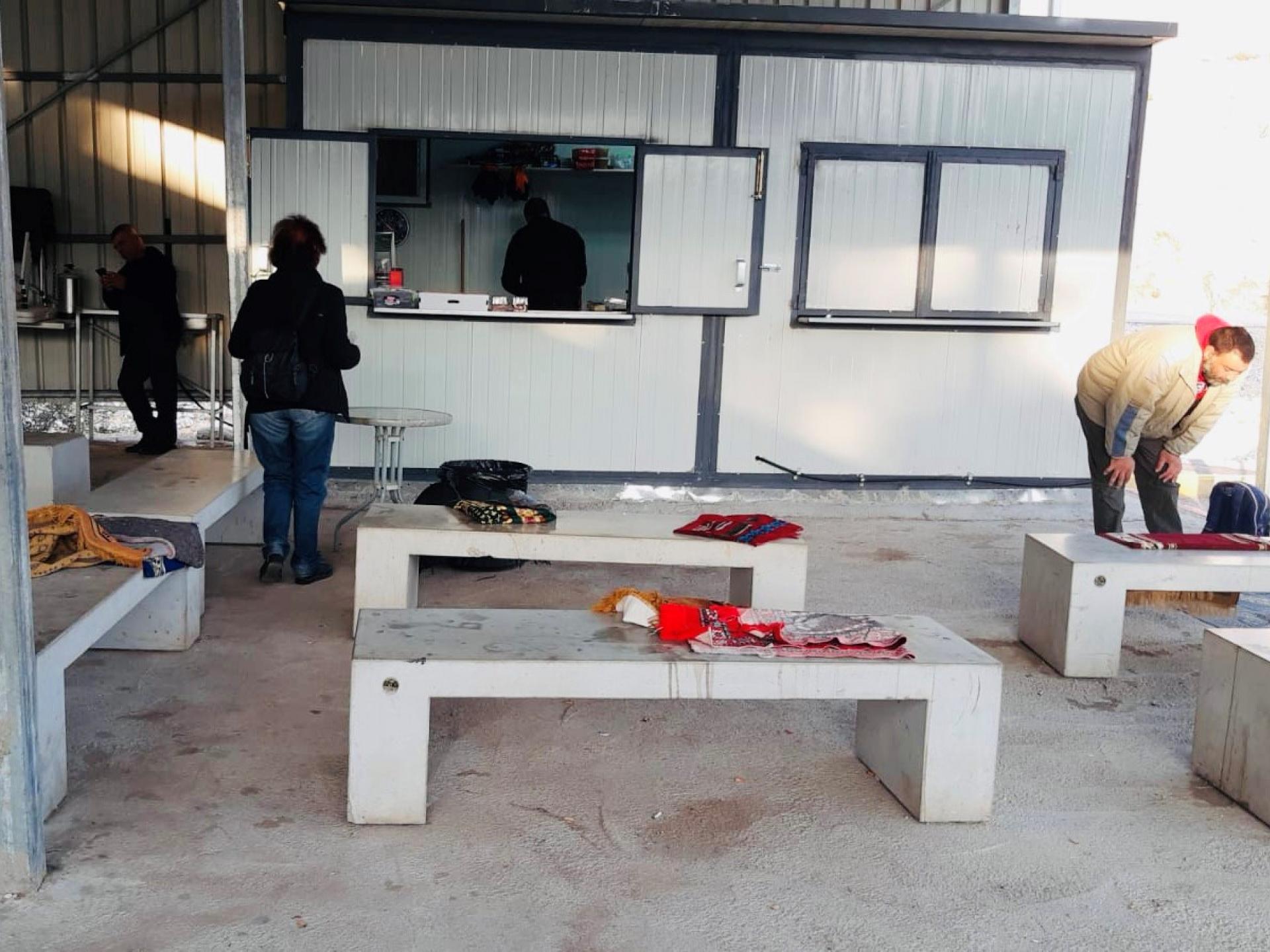Anin checkpoint: Palestinians' time is worth nothing
14:30 – 16:00
Agricultural Checkpoint, Anin (Open only twice a week.)
Yesterday, the residents of Anin were notified via the local council of the settlement, that the checkpoint will be open for those returning home, at 15:00 instead of at 16:00, and will only be open until 15:20. Because of this, we went to the checkpoint early. At about 15:00, two tractors and about 50 people arrived. They greet us and wait for the checkpoint to open. This morning, about 150 people left the checkpoint. In our opinion, the move to an earlier opening is designed to reduce the number of workers from Anin, who are not farmers, and who cross from here twice a week without spending money. On other days, they take a taxi to the distant Barta’a checkpoint.
As we have reported in the past, the young soldiers who are stationed at this checkpoint, are simply not able to cope with the 150-200 people in the short interval of 20 minutes, the time the checkpoint is open.
15:10 Two soldiers stay at the checkpoint to guard the fence 24/7 with nothing to do. Opposite them about 50 idle people sit who came early; they had to leave their work
because of the earlier opening time. And still the checkpoint was not opened as was announced!! Contempt for the Palestinians is another trampling of basic human rights. In the end, the checkpoint opened at 15:30, everyone passed through, and the checkpoint was closed immediately. The workers who left in the morning via this checkpoint, and before they arrive later, must return the long and expensive way through Barta’a checkpoint.
Barta’a Checkpoint
Hundreds of workers return from work in Israel and the Seamline Zone and go down the long sleeve (the enclosed passage) in the direction of the terminal. In the shed in the upper parking lot, a new branch of Shekem Kiosk was opened in the area of the checkpoint. One of the workers, a resident of Ya’bed, tells us with chagrin about the settlers in Maoz Zvi, who broke into his family’s olive grove and stole olives and equipment. “Do you want our land? Let the government dictate it, but who are these settlers?”
(the enclosed passage) in the direction of the terminal. In the shed in the upper parking lot, a new branch of Shekem Kiosk was opened in the area of the checkpoint. One of the workers, a resident of Ya’bed, tells us with chagrin about the settlers in Maoz Zvi, who broke into his family’s olive grove and stole olives and equipment. “Do you want our land? Let the government dictate it, but who are these settlers?”

